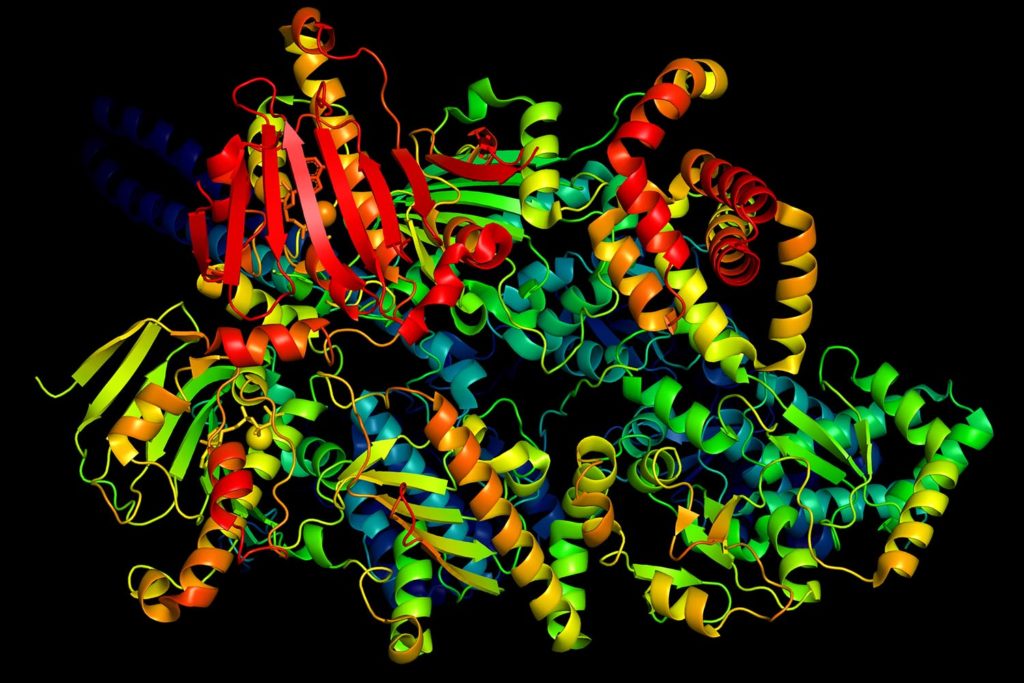What just happened

- Brexit negotiations have been extended to Sunday but both sides say “large gaps” remain between their positions (more below).
- A prototype of Elon Musk’s SpaceX Starship exploded on landing after a six-minute test flight.
- Britain signed a free trade agreement with Singapore that mirrors an existing one negotiated by the EU.
Last week’s announcement by DeepMind that it had worked out how to predict the structure of proteins with an algorithm is still sending ripples of excitement through the world of science – and industry, and environmentalism. One expert on plastic-eating enzymes told Tortoise he was so excited when the news broke that he couldn’t sleep all night.
So, to recap. It can take months and sometimes years for biologists to accurately determine protein’s shapes, but they stick at it because structural models help scientists understand how proteins work, which in turn helps them solve problems and develop new drugs and technologies.
How to speed that process up? By using AI. DeepMind, based in London but now owned by Google, last week announced the success of what it calls the AlphaFold2 system, which uses AI-powered modelling to predict how proteins fold, producing in hours extraordinary 3D models that look like party streamers. The company patted itself on the back for its “solution to a 50-year-old grand challenge in biology”.
The announcement was based on results from DeepMind’s participation in the Critical Assessment of protein Structure Prediction (CASP) programme, which has been encouraging research groups to develop predictive technologies since the 1990s. The groups test their tech on sequences of amino acids from recently discovered protein structures. The testing is done blind. They don’t have access to the structures beforehand, but their predictions are compared with the actual shape once they’ve produced a result.
DeepMind’s predictions were incredibly accurate. A CASP insider told us he was “blown away” by AlphaFold’s results. In fact there was speculation about whether there’d been cheating.
Is it that exciting? Yes. Our sleepless enzyme researcher is Exhibit A here, but the ability to produce highly accurate models within hours – instead of waiting for models based on difficult, expensive methods like x-ray crystallography – should be revolutionary.
Where?
- Plastic waste: a few years ago, biotech researchers in Japan found an enzyme that can break down PET plastics – which, left to themselves, take at least 450 years to start decomposing. Other researchers are seeking to improve on that naturally-occurring enzyme by engineering versions that can work faster. AlphaFold could hugely accelerate this research.
- Drug discovery: Coupling DeepMind’s protein structure predictions with databases of drug-candidate chemicals should radically speed up drug discovery and design. Professor John Moult, chairman of CASP, anticipates new treatments for cancer and tropical diseases within five years. The Motley Fool reports that AlphaFold has already modelled in half an hour the shape of one bacterial protein that the Max Planck Institute in Germany had been working on for more than a decade.
- Biotechnology: the ability to predict structures for proteins not found in nature – for example, enzymes that are good at capturing CO2 from the environment – could make possible a new generation of climate enzyme engineering.
There’s always a caveat. Two years ago, DeepMind tested the first version of AlphaFold. Scientists were excited about it then but it took the company a year to release a paper about it and even then it released only a portion of the code that made it work. Will Google be more open to sharing the software this time round? Last week’s announcement said it was “exploring how best to provide broader access to the system”. AlphaFold has such enormous potential, it would be dismal if Google decided to treat it as just another piece of proprietary software.
Oil money
Kuwait is in a tight spot. A general decline in the oil price and an additional Covid-induced slump mean that it’s forecasting a deficit of 40 per cent of GDP this year, according to the FT (£). Kuwait’s parliament is hesitant to draw down on the country’s $550 billion sovereign wealth fund and is blocking legislation which would allow it to lean on global debt markets to ease its liquidity problem. Few places on earth show quite as vividly as Kuwait that being rich doesn’t necessarily spare you from the curse of resource-dependency. It is baffling, though, that in their so-far half-hearted attempts at diversification the gulf states haven’t looked more seriously at their other big resource. Solar, anyone?
No more abuse
PornHub, the adult video streaming site, will change its rules to ban content uploads from unverified users following an investigation by the NYT ($) which found that searches on the site returned user-generated videos of child abuse, rape, revenge porn and spy camera footage filmed without consent. Campaigners have been raising this issue for years. In the past, PornHub has responded to claims that it profits from images of abuse by pointing to its “non-consensual content removal system”. Now Visa and Mastercard – two prominent financial partners of MindGeek, PornHub’s parent company – say they’re investigating the NYT’s allegations, and PornHub is taking action at last. Better late than never.











